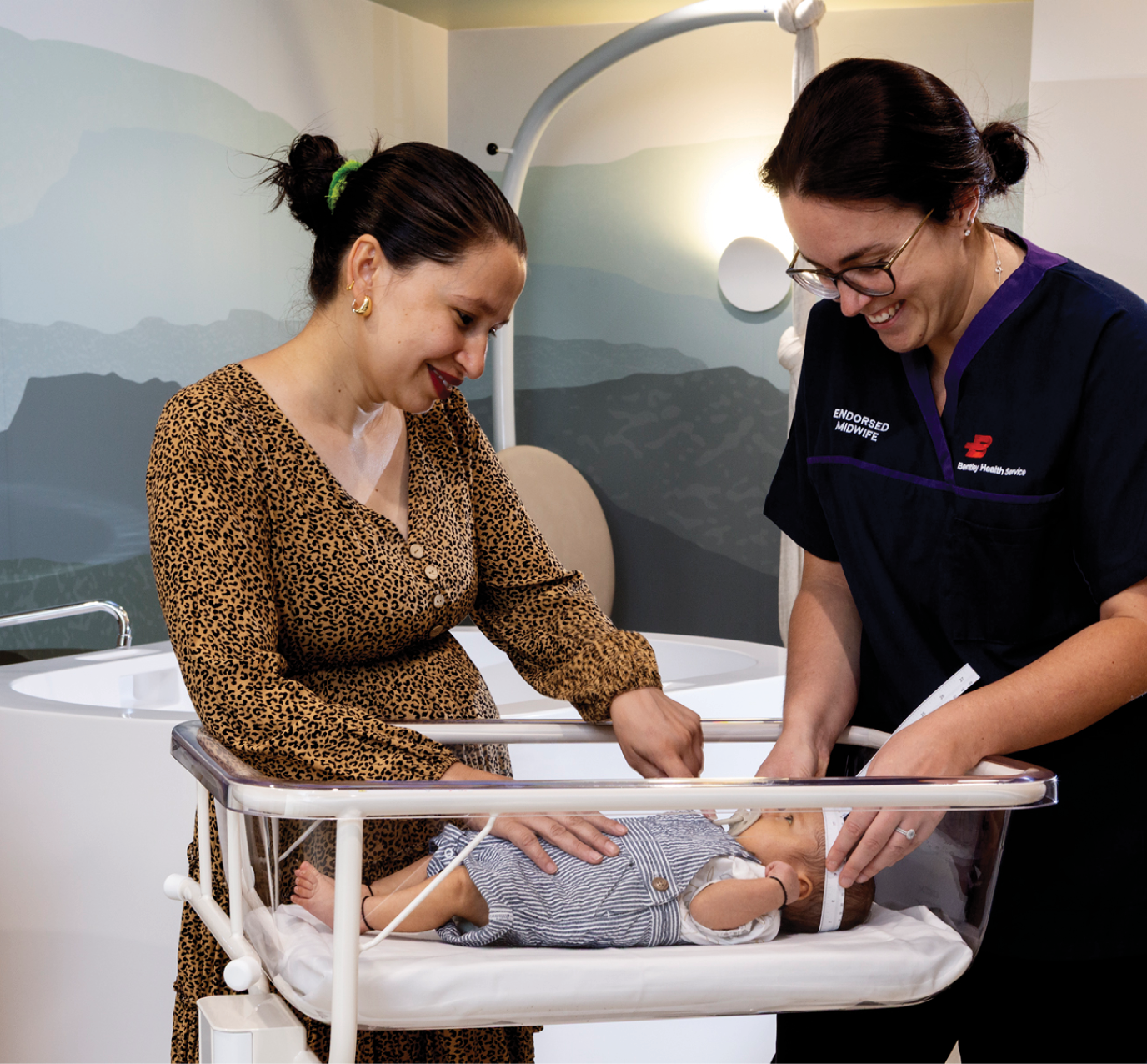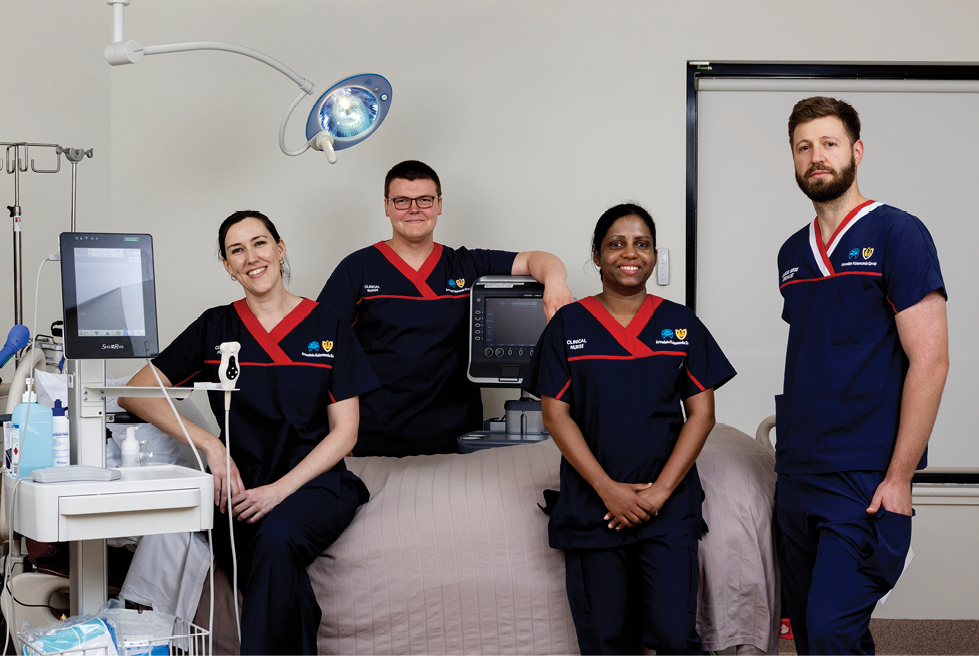Consumers and community
Supporting families: Midwives lead at Bentley birth centre
Our $2.6 million Midwifery Birth Centre which opened at Bentley Health Service in December is a significant development in maternity care in Western Australia.
The centre is WA’s first fully endorsed midwife-led maternity service within a public hospital and gives women access to skilled midwives, a supportive home-like environment and more pregnancy care options.
The centre is entirely staffed by credentialed and endorsed midwives who are highly trained and can order pregnancy-related tests and ultrasounds, prescribe medications and refer women and babies to obstetricians or paediatricians if needed.
Women receive continuity of care from the same midwife throughout pregnancy, birth and the postnatal period – even if a hospital transfer becomes necessary.
Designed for low-risk pregnancies, the centre has 2 private birth suites (each with a large birthing pool), a consultation room, a refreshments area and a midwives’ hub.
Located on the second floor of Bentley’s A block, it provides a comfortable environment which supports natural, low-intervention birth.
Women in the EMHS catchment can self-refer online, making it more accessible and empowering for expectant mothers.
The centre has had a phased opening and will run at capacity in the coming financial year.

Advancing patient care: Specialist IV catheter service boosts safety
A specialist, nurse-led peripheral intravenous catheter (PIVC) service at Armadale Health Service (AHS) has meaningfully improved patient safety and quality of care for a common procedure.
A PIVC is a small flexible tube inserted into a vein for medicine and fluids. It is used in over 70 per cent of hospital patients, but in some cases, can lead to blood stream infections.
The PIVC Review, Remove, Replace service – Australia’s first of its kind – helps reduce this risk and has achieved an impressive 100 per cent drop in patient blood stream infections at AHS during service hours.
Blood stream infections carry a high mortality risk.
Under the Review, Remove, Replace service, every adult inpatient with a PIVC has it reviewed by a clinical nurse every day. During the review, the nurse decides to leave the catheter in place, remove or replace it based on clinical needs and its condition.
Each patient is also informed why they have a PIVC, what potential issues to look out for and symptoms they should report.
The daily reviews help catch early signs of infection or other problems such as blockage, dislodgement or mechanical issues, reducing the risk of bloodstream infections and other complications.
Since the service began in June 2023, it has provided 14,234 logged reviews. AHS has also had only one case of PIVC related blood stream infection − on a Christmas Day when the service was not operating.
More than 795 health professionals have been educated on accurate PIVC assessment and quality care.
The PIVC Review, Remove, Replace service has made an important contribution to care at AHS and offers a model for other hospitals aiming to reduce catheter-related bloodstream infections.



